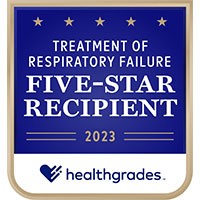Pulmonology
5 Common Inherited Health Conditions and Their Symptoms
Every person has two sets of genes, one from the mother and one from the father. Genes are made up of DNA, the hereditary material in humans and other organisms. Aside from physical features and characteristics, genes also determine some health conditions that people inherit from their parents.
Here are some of the most commonly inherited health conditions according to the National Center for Biotechnology Information of the U.S. National Library of Medicine.
1. Heart Disease
It’s no surprise that heart disease is part of the list, considering it’s the top cause of death in the United States. The most common types of inherited heart diseases are coronary artery disease (CAD) and hypertension or high blood pressure.
CAD is caused by plaque and cholesterol build up on the inner walls of the arteries. It affects the blood and oxygen that go to the heart. CAD gets worse over time and is one of the leading causes of heart attack in the U.S. On the other hand, high blood pressure occurs when your heart works too hard in pushing the blood through your arteries. Without proper treatment or management, it may lead to stroke, kidney failure, heart attack and other health conditions.
How to Lower Your Risk
Although having parents who have heart disease may increase your risk of acquiring it, you may still lower your risk or at least properly manage your symptoms. Some lifestyle changes that may help include eating healthy meals, exercising regularly, maintaining a healthy weight, limiting alcohol consumption, avoiding smoking and visiting your doctor for regular health checks.
2. Asthma
Asthma is a lung disease caused by triggers such as allergies, air pollutants, smoke, mold, dust mites, animals and exercise to name a few. The people who have asthma may suffer from an episode of chest tightness, coughing, breathing problems and wheezing once triggered.
How to Manage Your Symptoms
Limiting your exposure to triggers is the best way to avoid symptoms of asthma. You must also keep your medication at hand in case symptoms occur. If you do not know all your triggers yet, consult your doctor.
3. Diabetes
One in 13 people in the U.S. has diabetes. It can be caused by genetic, environmental and lifestyle factors. Whether Type 1 or Type 2 diabetes, it is a chronic disease that must be detected and treated early as it may lead to serious complications such as blindness, amputation, heart disease and kidney failure.
How to Lower Your Risk
Children or siblings of people with diabetes are more likely to get the disease. However, you may lower your risk or manage your symptoms better by eating less sugar and fat, maintaining a healthy weight, exercising regularly, avoiding stress and consulting your doctor for proper medication/treatment.
4. Single Gene Disorders
A single gene disorder is a certain gene that causes a disease. There are over 6,000 single gene disorders and their symptoms vary in many ways. Some single gene disorders can be identified as soon as pregnancy or child birth, while others may not be diagnosed until adulthood. Such disorders can be passed down even when the mother and the father of the individual do not show symptoms.
How to Lower Your Risk
If you are aware of a family single gene disorder, speak with a doctor so he/she can refer you to a specialist. Otherwise, you may seek out a test or screening to determine if you have a single gene disorder.
5. Cancer
Cancer comes in various forms. It is caused by uncontrolled growth and spread of abnormal cells in specific parts of the body. Aside from lifestyle choices, genes and environmental factors also contribute in having cancer. Some of the most common types of cancer include lung, breast and prostate cancer. Lung cancer leads to the most cancer deaths for both men and women in the U.S.
How to Lower Your Risk
The risks and symptoms vary depending on the type of cancer. Generally, you can help lower your risk by following a healthy diet, exercising regularly, avoiding smoking, limiting alcohol consumption and having routine health checks.
Final Thoughts
Have no idea about the history of your family’s health conditions? Do not hesitate to ask your parents or relatives as it can help you become more aware of your risks and prepare in advance for potential symptoms. Meanwhile, if you’re experiencing symptoms of any disease, please speak to a doctor so you can get the help and treatment you need as soon as possible.
Sources:
National Center for Biotechnology Information
National Human Genome Research Institute
University of Miami
U.S. National Library of Medicine
KidsHealth

 If you have pulmonary problems or suffer from a chronic lung disease, Saint Vincent Hospital can help you breathe easier. Designed to improve your quality of life, services include:
If you have pulmonary problems or suffer from a chronic lung disease, Saint Vincent Hospital can help you breathe easier. Designed to improve your quality of life, services include: